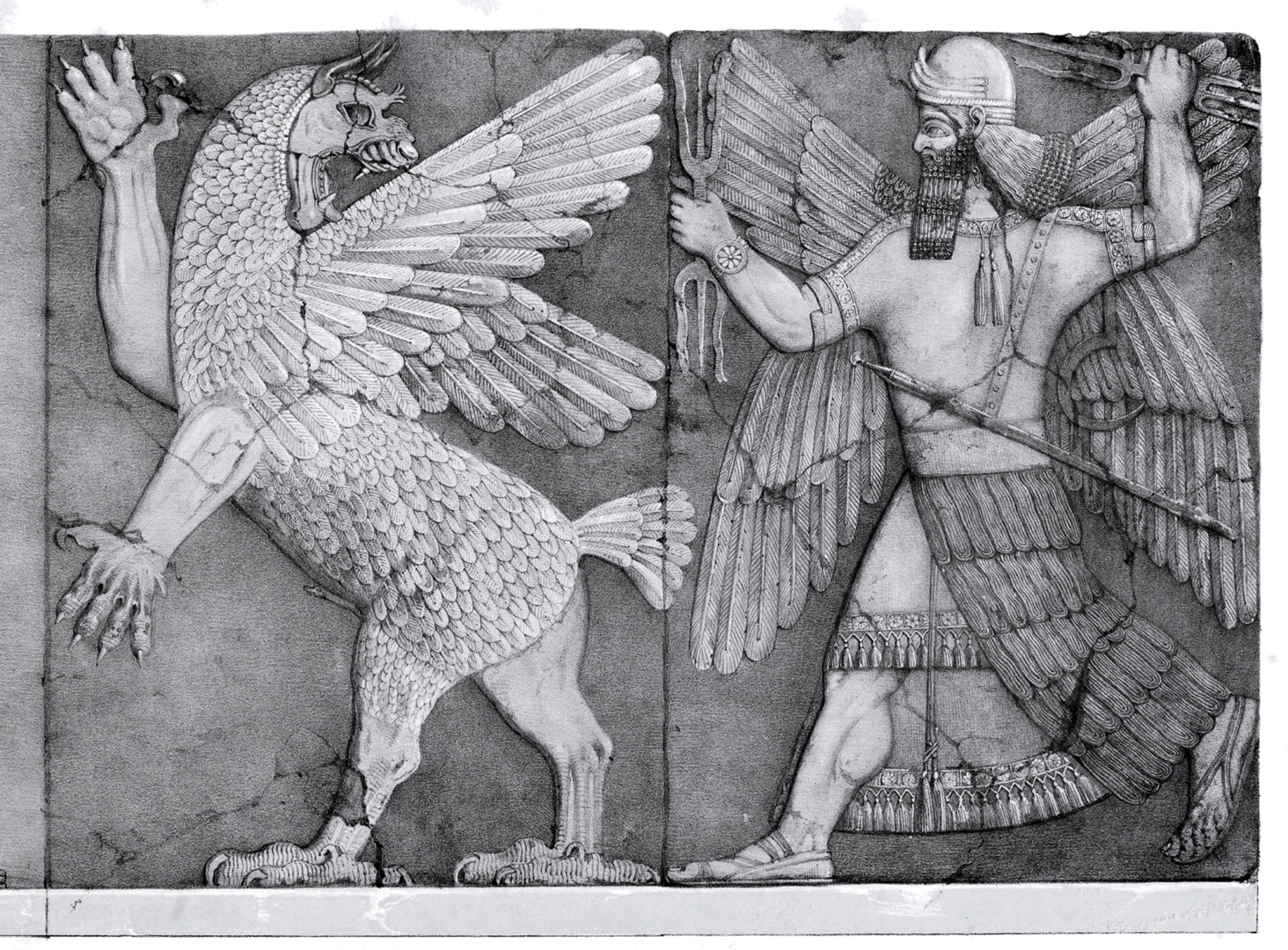So it Goes

Pondering the stories of The Iliad, The Burial at Thebes, and The Epic of Gilgamesh, I was reminded of the end of The Great Gatsby, where F. Scott Fitzgerald writes those unforgettable words: “So we beat on, boats against the current, borne back ceaselessly into the past.” Fate, destiny, and freewill each play a role in these books. While fate plays a large part in all three stories, it does so in varying degrees from tale to tale. This essay will attempt to prove that comparing these books almost forms a gradient — with the characters of The Iliad locked in place from the very onset, The Epic of Gilgamesh remaining ambiguous on the subject, and The Burial at Thebes throwing out the concept of predestined fate altogether.
The Epic of Gilgamesh is a moderate on this debate. It concerns the desperate efforts of the petulant king Gilgamesh in his quest to find immortal life. The question on whether or not Gilgamesh can succeed in this journey is left somewhat unanswered by the book. His quest brings him to Utnapishtim — the lone survivor of the mythical flood that cleansed the earth, and the sole person ever to be granted immortality. Utnapishtim’s very existence seems to suggest that Gilgamesh could indeed achieve eternal life, if he proceeded down the correct path. Although he gets very close to his goal, the fact that the King of Uruk narrowly loses his shot at immortality could be an indicator that Gilgamesh is bound by fate to die like the rest of mankind. After losing Utnapishtim’s first challenge, Gilgamesh is told of an herb called “the plant of heartbeat” deep within the earth that can prolong his life indefinitely if he simply eats it. But just as he is about to partake of it, he turns his back but for a moment and a serpent appears and devours his one hope for freedom from death:
Gilgamesh found a pool whose water was cool,
down he went into it, to bathe in the water.
Of the plant’s fragrance a snake caught scent,
Came up [in silence], and bore the plant off.
As it turned away it sloughed its skin.
Then Gilgamesh sat down and wept,
down his cheeks the tears were coursing.
…[he spoke] to Ur-shanabi the boatman:
‘[For whom], Ur-shanabi, toiled my arms so hard,
for whom ran dry the blood of my heart?” (99)
Was Gilgamesh truly robbed of the life-giving plant, or were there forces beyond his control looking to foil his quest from the very beginning? The sudden appearance of the serpent, coupled with the existence of Utnapishtim, almost seems to suggest that Gilgamesh, for whatever reason was not meant to partake of immortality. However, there is simply not enough evidence to flat out claim that Gilgamesh is bound by fate. As readers, we are left uncertain of whether Gilgamesh was ever capable of achieving his dream or not. If he could have entered into full Godhood the implications trickle down through the whole poem.
The fate of Achilles on the other hand, the hero found in The Iliad, is unquestionable. Achilles is bound to die at Troy and there is no chance of him escaping that end. The man himself says: “Let me not then die ingloriously and without a struggle, but let me first do some great thing that shall be told among men hereafter.” The actions of the war of Troy and its characters are as predestined as the acts of a play. Reading any dialogue from the poem will support the feeling that most of if not all the people involved are destined either to victory or certain death. My favorite line that echoes this, is found in Book VI, where Hektor tells his uneasy wife: “Why so much grief for me? No man will hurl me down to Death, against my fate. And fate? No one alive has ever escaped it, neither brave man nor coward, I tell you – it’s born with us the day that we are born” (212 Book 6 line 580). Hektor like Achilles, and very much unlike Giglamesh moves towards his ultimate fate accepting it outright.
The Burial at Thebes is the blacksheep of the bunch. Nowhere in the text is there even a hint of people being destined to walk a certain path. Everyone in the play is in the position they find themselves due to very specific decisions made during the course of the story. The martyr Antigone could have easily backed out of her choice to bury her brother, just as Creon had the opportunity to absolve her many times. Antigone herself makes it quite apparent that she is choosing her fate, and that death and martyrdom is ultimately what she desires. She says to her sister Ismene:
I urge no more; nay, wert thou willing still,
I would not welcome such a fellowship.
Go thine own way; myself will bury him.
How sweet to die in such employ, to rest,–
Sister and brother linked in love’s embrace–
A sinless sinner, banned awhile on earth,
But by the dead commended; and with them
I shall abide for ever. As for thee,
Scorn, if thou wilt, the eternal laws of Heaven.
Compare Anitgone’s words to that of Gilgamesh. Here we have Gilgamesh, a demigod mighty in strength, who fears death and spends almost the entirety of his story retreating from death. Antigone not only accepts death as inevitable, but also outright asks Creon to give it to her so that she may wear it as some sort of badge of honor. The question of freewill still troubles writers to this day, and in a way, all three outlooks seem grim. Antigone may have freewill but squanders it, and Achilles may die a hero’s death but would he have been happier with a different outcome? The implications change the way the stories read altogether and add shades to already endlessly complex narratives.
Works Cited
Fitzgerald, F. Scott. The Great Gatsby. New York: Scribner, 2004. Print.
Homer. The Illiad. Trans. Robert Fagles. New York: Penguin, 1998. Print.
Sophocles. The Burial at Thebes: A Version of Sophocles’ Antigone. Trans. Seamus Heaney. New York: Farrar, Straus and Giroux, 2004. Print.
The Epic of Gilgamesh. Trans. Andrew George. New York: Penguin, 2003. Print.
Seth Taylor
Professor John Talbot
Eng 201 Honors Masterpieces of World Lit 1
12 October 2015
So it Goes
